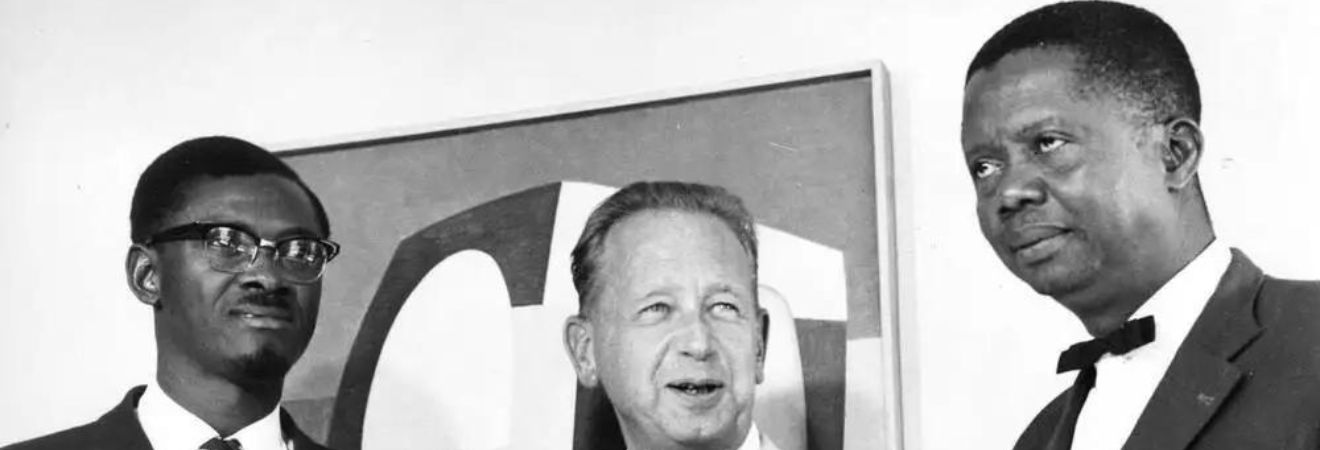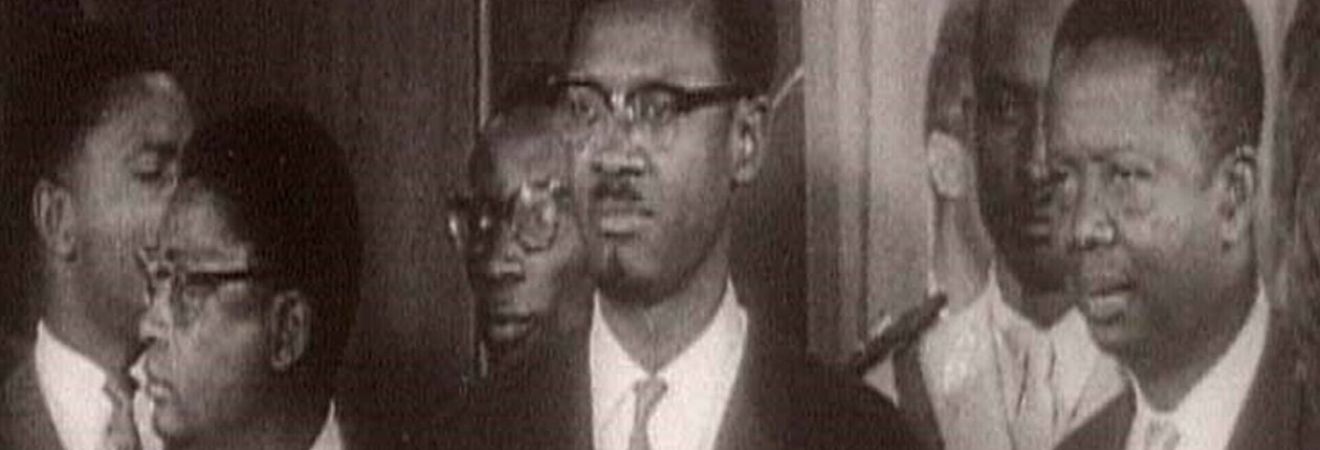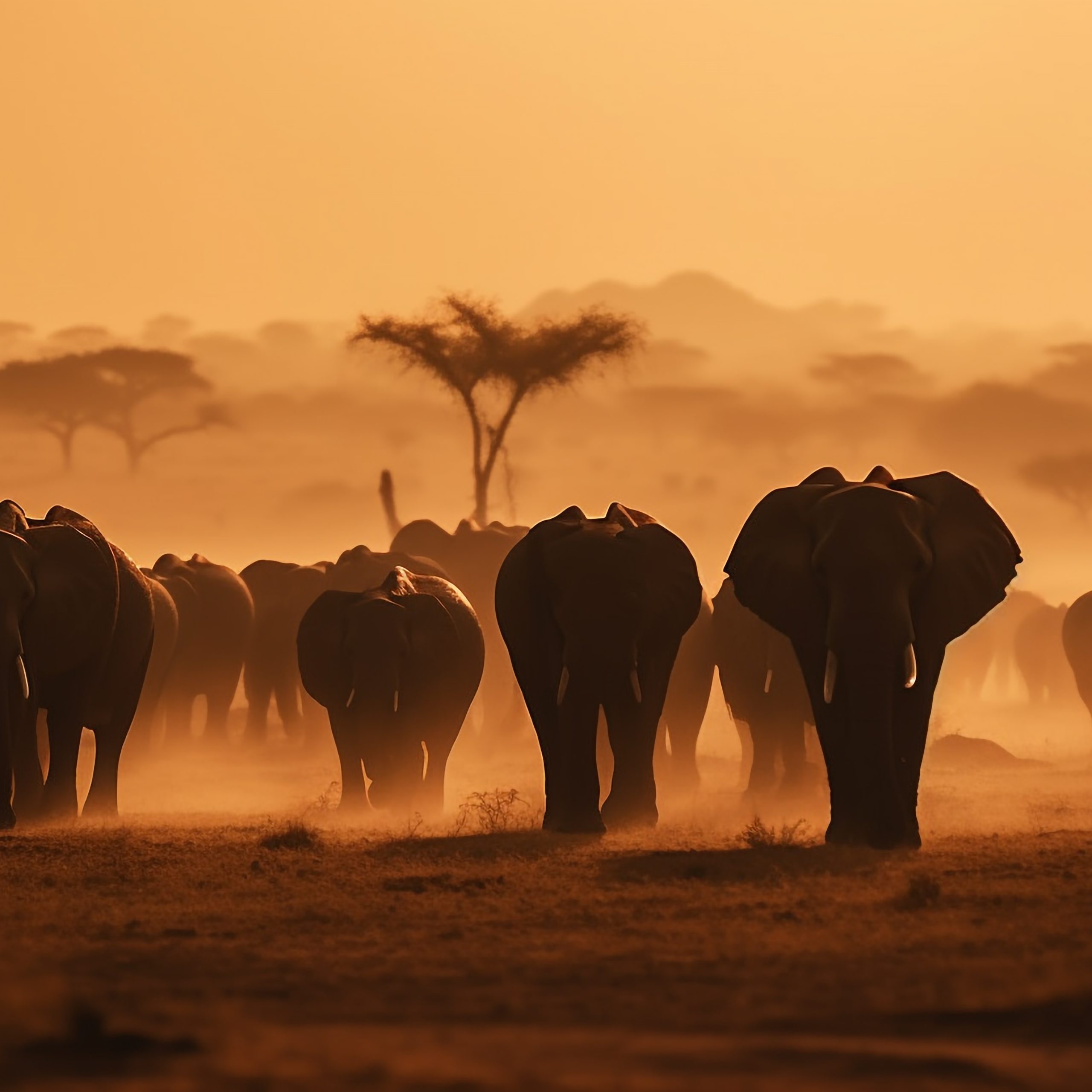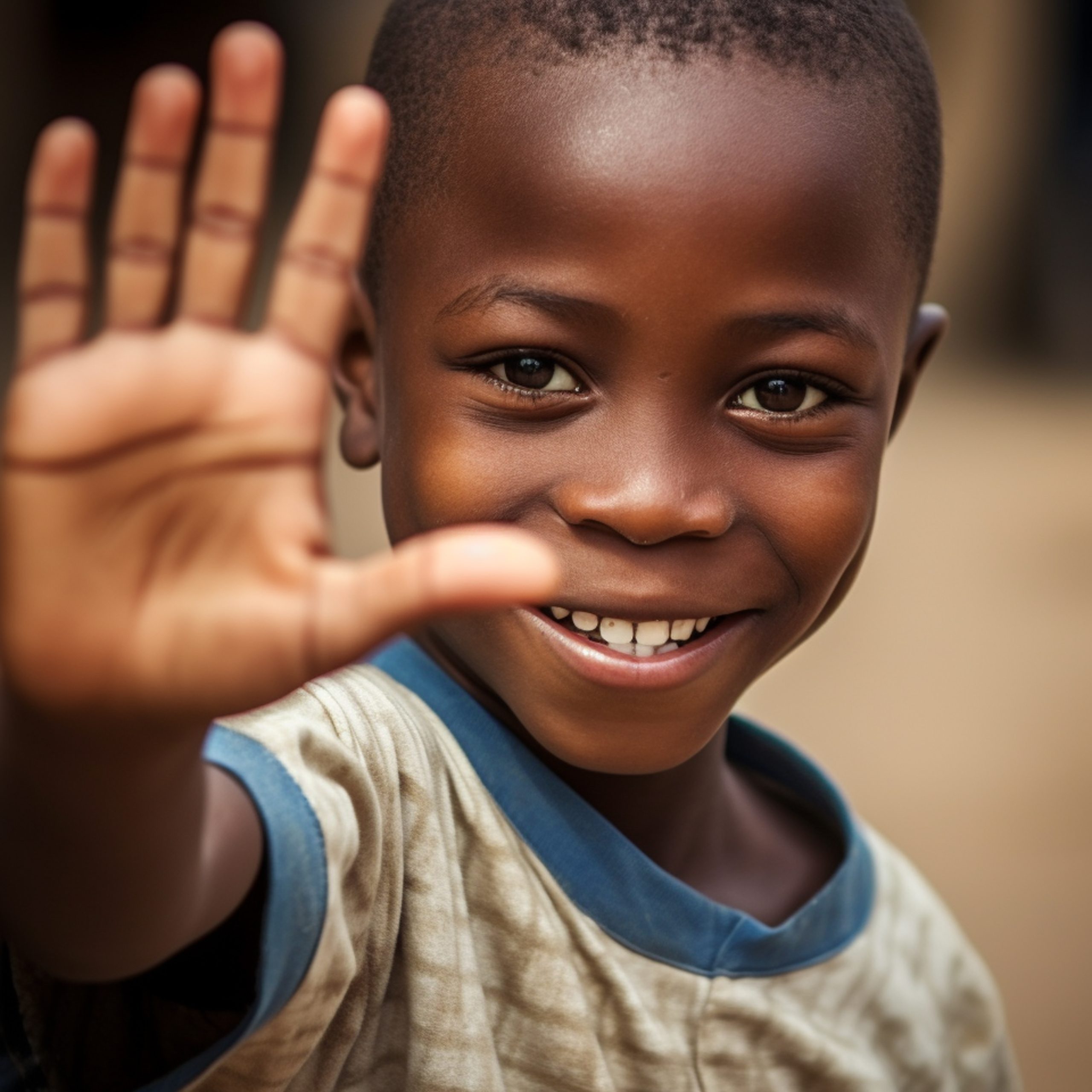THE MAN BEHIND THE FORGOTTEN HERO
By Sarah Okito updated on June 20, 2024
As the Stoic philosopher Seneca said, “It doesn’t matter whether we die sooner or later; the important thing is to die well or badly. To die well is to escape the danger of living badly”.
Do you think that agreeing to die for a nation result in a good death?
The answer to this question divides political opinion in the DRC. Before answering it, let’s retrace the life of a hero who has fallen into oblivion
The childhood
Joseph Okito was born on 05 February 1910 in the town of Lusambo, at that time the capital of Kasai province. The son of Toko (a soldier in the Belgian Congo police force,who was lost after his regiment was deported during the First World War (14-18)) and Enongo. He had 2 brothers named Wongudi and Olenga (who died very young).
A child of the Tetela ethnic group, his real name was Okito’Odimba, (meaning in the Otetela language, the heir of the drummer), but the colonial administration felt that this name was too long and split it in 2, keeping OKITO. He was educated at “Groupe Scolaire des Frères de la Charité” in his hometown of Lusambo. There were 6 years of primary school and 3 years of middle school. This was when most Congolese pupils were allowed to study, and those who completed the course were later considered to be in the advanced class.
However, after primary school, he was selected as a juvenile for the “Petit Séminaire” in Kabwe and finally for the “Grand Séminaire”. After the seminary, he became a teacher at “Groupe Scolaire des Frères de la Charité” in Lusambo and then at Collège Saint-Boniface in Elisabethville in Katanga. A devout Catholic, he wanted to devote himself to his religion in order to become a priest, but his mother Enongo was firmly opposed to this. He listened to his mother’s advice and took a 3-year correspondence course in accountancy under the supervision of Miss Gauthier, a Belgian chartered accountant, after which he became an accountant.
He left teaching for the railway company, BCK, in Elisabethville (now Lubumbashi), where he worked in the revenue management department as an accountant before being transferred to Luena station, also in Katanga. He left the BCK to move to Kasai and joined Amato & Frères, where he oversaw the accounts department at the Port Franqui (now Ilebo) branch.
Okito the Mukalamushi
It was between 1930 and 1940, on his return to his native Kasai, more specifically to Luluabourg (now Kananga), that he met his first wife and left Amato & Frères to set up on his own accounting firm, initially setting up a trust company, which marked the start of his highly successful entrepreneurial career.
He went on to found a series of businesses, ranging from forestry to the construction of modern houses for local people, and from the building of farm access roads to agriculture and bicycle hire. During this same period, his political spirit grew, along with an awareness of the injustice and cruelty of the world in which he and his children lived.
It was in this spirit that he and his friends from the “Cercle des Evolués de Luluabourg,” joined by Congolese military leaders from the Luluabourg garrison, launched the “Mukalamushi” revolt in 1943, named after the Congolese 1st Sergeant Major who led the soldiers’ mutiny.
The revolt was against the inhuman living conditions imposed on the Congolese during the Second World War (1939-1945), known as the “war effort”: back-breaking work for starvation wages, racial discrimination, bullying and arbitrary arrests, etc…. The Congolese people wanted only one thing: an end to the “war effort” and an improvement in their living conditions.
Unfortunately, the white population was brutalised and molested, their shops and offices looted and many of them forced to take refuge in the church of Saint Clément in Luluabourg. Congolese were forbidden to form political parties or trade unions, and only sporting, cultural or tribal organizations were permitted. Any breach of these regulations was punishable by heavy prison sentences or heavy fines.
The mutinous soldiers were executed, Joseph Okito and some of his comrades were arrested, court-martialled even though they were civilians, and placed under house arrest for three years. Those of his friends who were civil servants were dismissed from the Administration and relegated to remote and inaccessible locations.
It was only after the 1939-1945 war that Okito and his friends were released under an amnesty decreed by Governor General Pierre Rijkmans. Shocked and saddened by the exaggeration of their sentence, Joseph Okito understood that the system had been set up in such a way that using force would only lead to extreme results on the part of the oppressor; the fight certainly had to be made, but it had to be made differently, to bring the Belgians to take into account the wishes of the Congolese. He learned the first principle of politics: diplomacy.
Without knowing it, he developed one of the first principles of war: “Know your enemy and know yourself; in a hundred battles you will never be in any danger”. This is the reason why, after his liberation, Joseph changed tactics. Instead of attacking the Belgians head-on, he used the openings left by the colonial administration.
Thus, enjoying respect and his respectable social status, he became successively: President of the “Union des Intérêts Sociaux Congolais,” (a cultural circle for advanced people, the basis of the Luluabourg memorandum) and then President of the Association d’Entente Mutuelle des Tetela (Assema) and friends of the Baluba tribal associations (Mouvement solidaire Muluba), the Association Lulua Frères.
He also became a member of the pro-colonial association ” La Communauté Belgo-Congolaise” initiated by Governor General Léon Pétillon. He was a regular contributor to this association’s monthly newspaper, “La Communauté”, published by the Luluabourg Provincial Administration. His articles focused mainly on the history and customs of the Tetela people. They are still available at the Bibliothèque Africaine in Brussels.
Thanks to his achievements, he was co-opted onto the Kasai Provincial Council and the National Council in Léopoldville from 1957 to 1959. During the same period, he continued to publish his monthly community newspaper in Otetela, Tshiluba and French.
School, the future of our children
Having learned from their previous experience, Joseph Okito and his childhood friend, Sylvestre Mudingayi, set themselves the task in 1954 of changing the school system in Luluabourg and Lusambo and, by extension, throughout Congo.
Their demands were based on the school curriculum, which they felt was mediocre and racist, leaving no room for diversity in terms of professions., The indigenous people were not allowed to study further, which was why there was no state university in Congo.
Okito and his friend took advantage of the Belgian liberal intelligentsia that had come to power in Belgium in 1953 to put pressure on Auguste Buisseret, the Belgian liberal party minister responsible for the colonies, to create official schools and end the monopoly on education enjoyed by the Catholic Church.
They took advantage of the arrival in power of the anti-clerical Belgian Liberals to convince them to put an end to this system and create official schools based on the Belgian metropolitan curriculum and a state university in Elisabethville to replace the Catholic university in Leopoldville.
An alliance of circumstance was thus formed between the Congolese “évolués” and the Belgian anti-clerical liberals, resulting in the first diplomatic victory for Joseph Okito and his “évolués” friends.
They succeeded in obtaining from the Belgian administration the creation of official primary and secondary schools in Luluabourg, Kabinda and Luebo in the province of Kasaï. This was a great victory, not against faith or belief, but against racism, the poor quality of teaching, obscurantism and the ignorance of the Congolese population, which benefited the priests.
Unhappy with the creation of official French-language schools, the Flemish Catholics were not disarmed. They tabled a motion at the assembly to make Flemish the official language of Congo, and Congolese pupils were required to choose between French and Flemish as the national language.
Okito, his Congolese friends and the French-speaking Belgians joined forces to fight this proposed law and won the victory by maintaining the primacy of the French language.
The natives were against Flemish, the language being equated with oppression, and this rejection of Flemish echoed the rejection of Afrikaans, a cousin of Flemish, by the black population of South Africa.
Creation of Congolese social security
Since Leopold II, Congolese workers have enjoyed no social protection and even less social benefits. Working hours, for example, were not regulated. An average of 15 hours a day was not uncommon: the Congolese worker was taillable and corveable at will.
Papa Okito, supported by a few progressive white men, led a movement to defend Congolese workers, which resulted in the creation of the Office Congolais de Sécurité Sociale (Congolese Social Security Office). This gave Congolese workers the right to sickness and disability insurance, unemployment, retirement and paid leave. Working hours were set at 8 hours a day.
Thanks to these actions, his reputation and his connections in Kasai, the colonial administration chose him as one of two Congolese to be trained for the role of Sankuru district commissioner.
Okito jumped at the chance, thinking that the training would help him in his future political career. So, he was sent to Lusambo to observe the district commissioner and was educated in the principles of administration for an hour a day. He was subsequently appointed a member of the Kasai Provincial Government Council, which was held in Luluabourg, and a deputy member of the General Government Council, which sat in Leopoldville.

The meeting of the titans
In 1959, the political climate in the Congo had nothing in common with that of 1958, the year of the 50th anniversary of the annexation of the Congo by Belgium. Political parties had been authorised and on 4 January the people of Leopoldville had rejected the colonial regime and shown the whole of Congo the way to independence.
Political parties, workers’ unions and youth movements sprang up all over the country. It was in this context that, in 1959, Joseph Okito founded and became president of the Union rurale du Congo (URUCO), whose programme was characterised by the demand for gradual independence in agreement with the Belgians.
In August 1959, during Lumumba’s tour of the Kasai, he met Okito. Their exchange was stormy, as the young leader of the intransigent MNC was adamant about his desire to obtain independence as soon as possible.
While he agreed with the principle of independence, the President of URUCO felt that the Congolese leaders lacked the training and experience to run the country. He therefore felt that it was necessary to wait and ask the Belgians for gradual independence, to give them time to train the Congolese leaders who would take over at the appropriate time.
To this, the MNC president retorted that if the Belgians had not wanted to train the Congolese during 80 years of colonisation, they would not be able to train engineers, doctors, lawyers etc. in just a few years. They claim that the English and the French trained academics like Kwamé Nkroumah, Léopold Senghor and Sheik Anta Diop. But the Belgians did not train any academics.
Lumumba retorted: We are going to train our own academics and, if necessary, with the assistance of our sister African countries, which are already independent. But first we need immediate independence!
Everyone stuck to their guns. A few months later, Okito relativised his position by listening for the first time to pan-African speeches in Ghana at conferences organised by President Kwame Nkrumah, in which Malcolm X, Patrice Lumumba, Okito and other friends took part.
They were one of the only Congolese leaders to leave the confines of the colony to make contact with other African countries, which were awakening to independence and dreams of anti-colonial solidarity.
This trip was like a revelation, a wake-up call. From then on, it was necessary to fight for the independence of the DRC at all costs. Following the break-up of the MNC into the Lumumba MNC and the Kalonji MNC factions, in May 1959, the nationalist movement ran the risk of being marginalised in its former stronghold of Kasai.
To counter this risk, Patrice Lumumba, aware of Joseph Okito’s reputation among Kasaians of all tribes, asked him to coordinate the activities of the nationalist parties in Kasai and particularly in Sankuru, where they both came from. In April 1960, Patrice Lumumba asked Joseph Okito to prepare in Luluabourg the congress of the nationalist parties linked to the MNC: André Lubaya’s UNION CONGOLAISE, Dominique Manono’s FEDERATION DES BASONGE, URUCO, Barthélémy Mujanayi’s progressive wing of the MOUVEMENT SOLIDAIRE MULUBA, the ASSOCIATION DES ANA MONGO and certain figures from the PNP and the main traditional chiefs of Kasai.
The aim of this Congress was twofold: firstly, to inform the nationalist parties of the resolutions of the Round Table conference and, secondly, to build a solid platform for the legislative elections scheduled for May 1960. Joseph Okito’s connections in the Kasai associations contributed in some way to the victory of the nationalist parties with almost 60% of the vote.
At the end of the elections, the president of URUCO, Joseph Okito, was elected senator, having competed for the post of first vice-president of the Senate, losing to Jacques Masangu. On 22 June 1960, he was elected second vice-president of the Senate.

Short-lived joy
30 June 1960 was a day of ecstasy, the country vibrated to the rhythm of Grand Kale’s “Cha-Cha Independence”, the bars were full, the rumba gave Congolese towns hope of a glorious future, and Lumumba’s speech to the Congolese people ruffled the hair of the town. This feeling of fulfillment was accompanied internally by incomprehension and low blows orchestrated by the West and the gravediggers of Congolese independence.
So it was that on 11 July 1960 (less than two weeks after Congolese independence) Moise Tshombé, with the support of the mining union of Upper Katanga, declared the independence (and therefore the secession) of Katanga.
The deputies and senators of the secessionist parties, including Jacques Masangu, joined Katanga and Joseph Okito became the first vice-president of the Senate. In response to the civil wars and the instability in the country, as reported in the newspaper (Feuille d’Avis de Neuchâtel) of Saturday 23 July 1960.
NEW-YORK (Reuter). – A spokesperson for the Belgian Foreign Ministry told a press conference that Belgium was preparing a full report on atrocities committed by Congolese on Belgians. The report is being drawn up by a commission of Belgian judges, charged with investigating the “brutalities” and “bestiality” of Congolese. Most of these acts were mass rapes of white women in the presence of the victims’ children. The spokesperson added that among the refugees from Congo was a little girl whose hands had been amputated at the wrist. Many men were also seen with their ears cut off.
At the height of the Cold War, the West feared an agreement between the Soviet Union and the Congo.
So it was that after the Security Council debate on the Congo, by a unanimous vote tabled by Tunisia and Sri Lanka, Belgium was invited to give “rapid” effect to the resolution which “calls upon all States to refrain from any action which might tend to prevent the restoration of law and order and the exercise of authority by the Congolese Government, and also to refrain from any action which might undermine the territorial integrity and political independence of the Republic of the Congo”.
Having voted in favour of the aforementioned resolution, the USSR representative withdrew the Soviet draft resolution previously proposed to Lumumba, who declared at a press conference that it was no longer necessary to call on Soviet forces. At the same time, he signed a financial and technical assistance agreement with an American financial group.
According to the newspaper Le Monde, on 25 July Lumumba and Okito set off for New York for the United Nations General Assembly after spending the night in Accra, where they met President Kwame Nkrumah.
Meanwhile, in Leopoldville, Belgian troops began to leave the Congo. A few months after their return, on 5 September, Joseph Kasa-vubu decided to dismiss Prime Minister Lumumba and appointed Joseph Iléo (previously President of the Senate) as the new Prime Minister.
On 8 September, after a vote, Joseph Okito was appointed President of the Senate. As soon as he was elected, on 10 September 1960, he convened a reconciliation commission with the aim of reinstating Lumumba as Prime Minister.
The commission was made up of 3 senators and 3 deputies under the aegis of the UN mission in Congo represented by the Haitian François David. The Congolese members included Joseph Kasongo, President of the Chamber of Deputies, Joseph Okito (President of the Senate), Wéréguéméré Chrysostome and 3 other parliamentarians.
On 13 September, the parliamentarians, the President of the Republic and the Prime Minister signed the act of reconciliation. Kasa-vubu and his group never implemented the provisions of this act under pressure from foreign powers.
On the evening of 13 September, Okito personally handed over a copy of the memorandum of understanding to the director of the national radio station for broadcasting.
After the broadcast, on 14 September, Joseph Désiré Mobutu staged his first coup d’état, which led to the suspension of the Head of State, the Prime Minister and the government, as well as the adjournment of Parliament.
Faced with this situation, Okito sent several telegrams to the Secretary General of the United Nations, Dag Hamadjshold, to let him know the extent of the situation. (They can be found at the United Nations headquarters in New York).
Take care of my children in Leopoldville
In a desperate attempt to escape the escalating political tensions in the capital, in late November Prime Minister Patrice Lumumba decided to escape to Stanleyville (now Kisangani) to set up a new government.
However, his escape was interrupted when he was captured and imprisoned in the Thysville military camp. Meanwhile, Joseph Okito, a close ally of Lumumba, was preventively arrested near Kikwit and transferred to Camp Léopold, along with the Minister for Youth and Sport, Maurice Mpolo.
On 17 January 1961, the three men were flown to Elisabethville, the capital of the secessionist state of Katanga. On arrival, they were brutally tortured by Moïse Tshombe and Godefroid Munongo, sworn enemies of Lumumba and leaders of the Katangese secessionist movement.
On this cold night, caught one after the other, pinned against a tree, they are murdered by a firing squad.
Okito was the first to be shot. As he was being led to the tree, he expressed his concern for the well-being of his wife and children back in Leopoldville (now Kinshasa), to which someone coldly replied: “We are in Katanga, not Leo”.
After their execution, the bodies were hastily buried and later dug up and dissolved in acid.
In July 2022 Joseph Okito was recognised as Grand Officer of the National Order of “Kabila-Lumumba National Heroes”.



